#lough view
Explore tagged Tumblr posts
Text

#original photography#original photographers#photographers on tumblr#ireland#sunset#belfast#lough view#lough light#leicadiary
877 notes
·
View notes
Photo



The Banshees of Inisherin Martin McDonagh. 2022
Lake Lough Acorrymore, Keel West, Co. Mayo, Ireland See in map
See in imdb
#martin mcdonagh#the banshees of inisherin#kerry condon#lake#lough acorrymore#achill island#keel#county mayo#ireland#movie#porno cinema#film#location#google maps#street view#2022
31 notes
·
View notes
Text
An ancient castle transformed into an upscale country house hotel

Ashford Castle /Ireland (by Kuba Cieloch).
#Ashford Castle#County Mayo#West of Ireland#Irish castles#country house hotel#Irish countryside#aerial view#Connaught#mediaeval#Lough Corrib#Galway#Eire#5-star resort
2K notes
·
View notes
Text
got a really good look at a jay in flight today. absolutely showstopping!
#contact call#peachy-brown body with the black-and-white wings and the beautiful blue...#literally the best corvid#got a grainy pic of another jay too#also got 2 buzzard pics today! may post them tomorrow at some stage#got a very brief view of both a merlin and a stock dove today as well#lough boora in county offaly my beloved#i've seen hen harriers there but no luck today unfortunately
1 note
·
View note
Text
Did Taylor Swift write "Sweet Nothing" about Paul McCartney and his wife's summer in Wicklow in 1971?
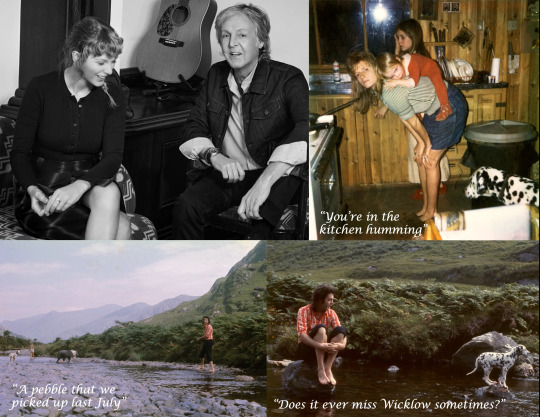
The song "Sweet Nothing" on Taylor Swift's Midnights has always stood out to me as a bit of an anomaly. Until this intriguing quote by Paul McCartney caught my eye:
In a 2001 ABC interview about his wife Linda, who passed away in 1998, Paul McCartney said:
"I would go out for a run, think of some words, get home from the run, write them down, and make a cup a tea for Linda," said McCartney, who would bring it to her for breakfast. "I'd make a little tray, and go up, and then I'd say, 'Hey, by the way, do you want to hear some poetry?' She'd always … she'd say, 'Yeah.' And so I wrote that poem." 'Blessed.' I would come back from a run. With lines of poetry to tell. And having listened, she would say "What a mind."
This is a direct quote and exact same storyline as in "Sweet Nothing." There is NO WAY that is a coincidence. So I wanted to see if Paul and Linda had any connection to Wicklow - the place mentioned in the song.
I think the McCartney family vacationed at the Luggala Estate in Co. Wicklow, Ireland in the summer of 1971 as an escape from the aftermath of the Beatles breakup.
A sweet Wicklow love story:
Paul McCartney has connections to Luggala going back to 1965-1966 when he partied at the estate with Guinness Brewing heir Tara Browne who was killed in a car accident a few months after his raucous 21st birthday, and inspired the Beatles song "A Day in the Life." Paul was close to Tara and his death deeply impacted him. This Rolling Stone article details their relationship and mentions that Paul has visited Luggala to visit Tara's gravesite since then on "numerous occasions." Paul had not met his wife Linda yet while Tara was alive, but this proves Paul's deep and personal ties to the family and their 5,000 acre private estate in the Wicklow Mountains, which continued to be a private retreat for celebrity guests until it was sold in 2019.
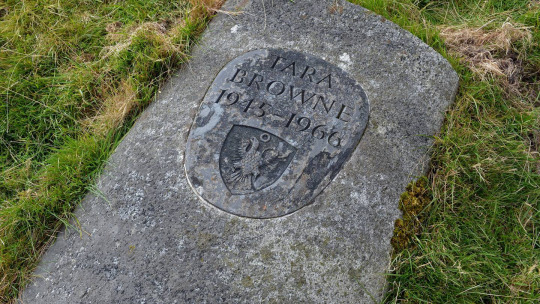
Paul McCartney has posted multiple family photos taken by his wife in the summer of 1971 that appear to be taken near the Luggala Estate in Co. Wicklow. He tweeted this photo on St. Patricks day in 2017 which a previous Reddit thread links to Wicklow in 1971. And recently on March 2022 he tweeted this photo which appears to be taken the same day judging by his shirt and his dog, and credits the photo as being taken by his wife (she was a professional photographer) in Ireland in 1971. Here you have a better view of the surrounding mountains and rocky streams (full of pebbles I'd imagine...) It's notable that the second photo was posted March 2022 around the time when Taylor would be writing and recording the Midnights album.
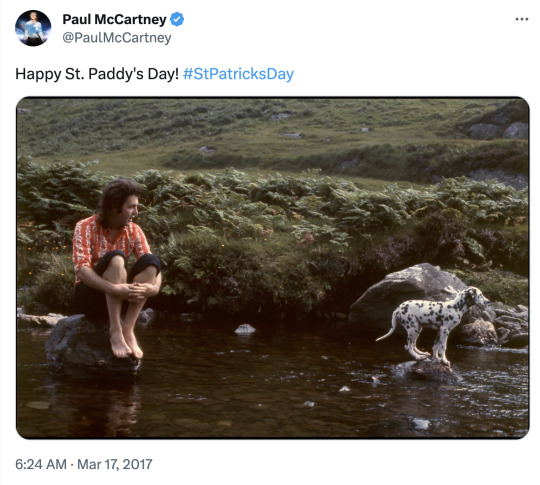
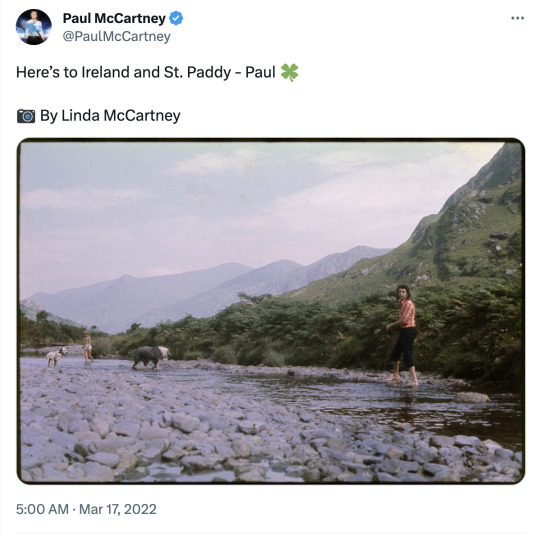
If you look at the aerial view of Luggala Estate (Now showing on Google Maps as Luggala Lodge), I believe that these photos were taken in one of the rocky streams that feed into the private lake...which is named Lough Tay. (I like to think it's an extra little wink from Taylor that this investigation literally led me to a lake named Lough Tay.)
This area is completely private and the closest public access is from a hiking overlook. This seems like a great place for one of the most famous musicians in the world to hide out with his two young children, 2 dogs, and Linda, who would have been pregnant with Stella McCartney (born Sept 13, 1971).
We know that the family and their dogs were in Ireland in the summer of 1971 from this newspaper article where they were photographed at an airport in August leaving Ireland, which means it's possible that they were in Wicklow a few weeks earlier in July.
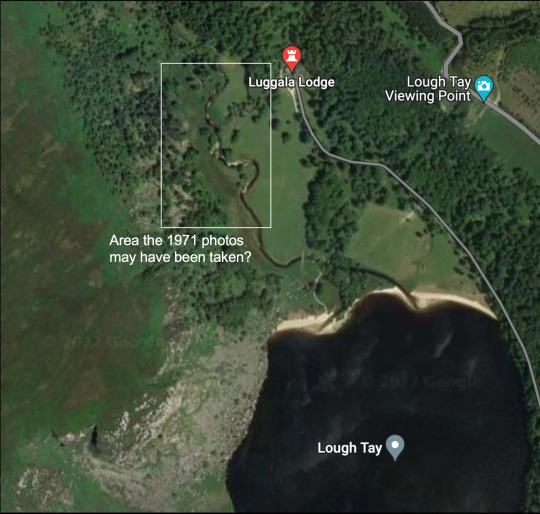
Even though The Beatles broke up in 1969, it continued to be messy between members of the band and the financials involved for the next few years. During the summer of 1971 Paul McCartney and John Lennon were embroiled in a very public fight. There were lawsuits and scathing letters (dated 1971) and it's all very complicated so I won't go into it here, but this article has a good overview.
The lyric, "Industry disruptors and soul deconstructors and smooth-talking hucksters out glad-handing each other" could reference these incidents. I could see Taylor relating to Paul going through this public turmoil surrounding business with former friends, because it is similar to what she's going through with her masters.
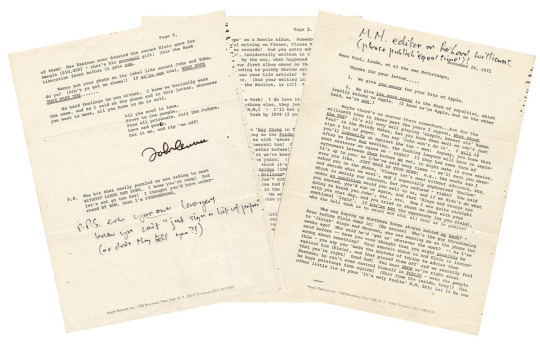
The lyric "You're in the kitchen humming" could reference Linda's passion for cooking and vegetarian activism. She literally founded a food company��and wrote a cookbook. This darling photo on her website shows her cooking at the family home in Scotland in the 1970s. Linda was also a singer and recorded many songs with Paul, so the idea that she could be "humming" makes sense.
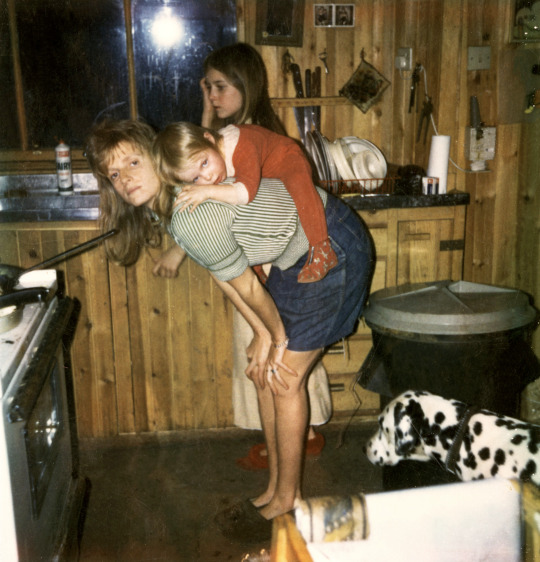
Taylor Swift has been friends with the McCartney family for a while. She first met Paul in 2010. She collaborated with Stella McCartney in 2019 for a clothing line as part of the Lover era, and Stella also dressed her for the Evermore album cover in 2020.

Taylor and Paul McCartney famously interviewed each other for Rolling Stone's "Musicians on Musicians" in 2020. In this article they mention how they both like writing under pseudonyms.


But the most surprising thing I learned is that Paul actually wrote a song dedicated to Taylor and her relationship with her fans called "Who Cares."
youtube
Notably, the music video also features Taylor's longtime friend Emma Stone wearing rainbow makeup in an otherwise black-and-white world full of cartoonish bullies. It's notable that the music video was released Dec 2018, right before the Lover era would kick off a few months later. Perhaps Paul was showing a bit of preemptive support for Taylor as she embarked on what many of us believe was intended to be her coming out era?

Now to the William Bowery of it all:
Taylor clearly wants us to think Sweet Nothing is about Joe because of the Wicklow name drop, where Joe was papped in July 2021, which looks staged to me.
Interestingly, I can't find any photos of Taylor being seen anywhere near Wicklow, but for some reason she staged a whole photoshoot in Northern Ireland in July, where locals said she "arrived and left by helicopter in a fleeting visit."
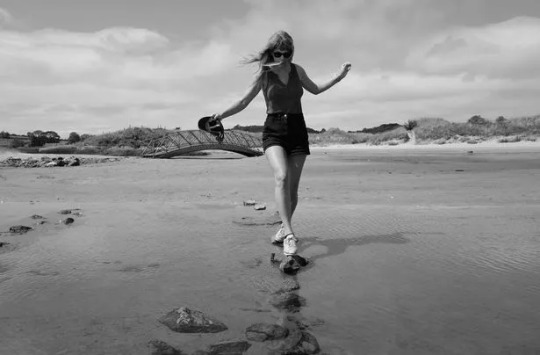
She was also seen in several different locations in Belfast in fan photos. This article also says part of Red TV was recorded in Belfast.
Clearly she wanted to be seen and linked to Northern Ireland, and the lyric easily could have been "Does it ever miss Belfast sometimes?" (same number of syllables) but it's not.
"Sweet Nothing" does have a William Bowery co-writing credit. Would Sir Paul McCartney agree to a secret writing credit? Maybe.
I read an interesting twitter thread from a lawyer (who is a Gaylor) that discusses how William Bowery could be a name under which Taylor commissions writing "for hire." Meaning it could be Joe or multiple other people writing under that pseudonym, as opposed to the "Willam Bowery" (spelled different) which is listed as a U.S. Citizen.
Even if Paul wasn't involved in writing the song, I believe he inspired "Sweet Nothing."
---
Note: This theory was originally posted on the R/GaylorSwift subreddit Dec 22, 2022 which is currently set to private. I am the original author of the Reddit post (u/-periwinkle), and am reblogging it on my Tumblr because this theory has been gaining traction and I wanted to create a public version. This version has been slightly expanded and updated with better images. Also, I was not the first person to uncover the "what a mind" quote, and the original person who found it is tagged on Reddit.
131 notes
·
View notes
Text
This was my entry for the Arts & Sciences competition at Champions of Lough Devnaree this year, which had a theme of "Autumn". I haven't entered a poem before, although I write them pretty frequently. There's some commentary at the end of the documentation about that.
Autumn Sonnet
My harvest is more words and deeds than grains, My crops more thoughts than leaves and solid roots, Others’ regard a measure of my gains, A harvest grown from springtime’s solemn moots. But harvest reaped brings earthen joy to winter, Provides the food that through the cold sustains; As days go dim, what’s brought becomes the centre And in the frost the fallow field remains. As summer’s light from bounty now pours forth, The summer’s labours, gentler, warm us more Than planting, gleaning, reaping did, to sort Into the dark well-armed, warmed to the core. But how the mind will not lie still, wanting To go past the snow, to next year’s planting.
Introduction
This poem is written as an English Sonnet in or around the 1590s. There are four major considerations for writing a poem in a period style.
Does the form exist?
Do the words exist?
Do the rhymes exist?
Do the concepts exist?
The following discussion looks at each of these.
Form
The sonnet is the most Shakespearean of poems; almost all the poetry William Shakespeare wrote was in this form, and there were plenty of other writers in the late 1500s using it (Spenser, Sidney, Howard, Constable, etc.). Indeed, what’s sometimes called the English Sonnet - to differentiate it from the Italian or Petrarchan sonnet - we frequently know as the Shakespearean Sonnet.
The English sonnet has the usual 14 lines in iambic pentameter (off-on stresses, repeated five times for a total of ten syllables), arranged in three quartets (four lines each) and a couplet at the end. The rhyme scheme is ABAB CDCD EFEF GG. In the Italian sonnets, it’s usual for the volta (“turn”) to occur at the 8 line mark - this is where the poem changes direction, presenting a different point of view in the final 6 lines. In the English sonnet, the volta happens more often at the 12-line mark, making the final couplet the differing point of view. In Shakespeare’s poetry, this sometimes makes it almost like a punchline to a joke.
The Autumn Sonnet fits this form exactly, with the turn from consideration of the metaphorical harvest to next year’s planting after 12 lines.
Words
The easiest way to verify a word for this period is to search the works of Shakespeare for it. Every word in the Autumn Sonnet occurs in that text, except for “moot”, in the sense of a gathering or discussion. This term did exist in Shakespearean English - it’s originally Old English - although it wasn’t in common use. The later term “moot point”, for something that has already been decided, was not a 16th century usage, although it does come from the same root.
Rhymes
The ways in which we pronounce words have changed since the 1590s, even where the words remain more or less the same. “Prove” and “love” rhymed for Shakespeare; modern renderings of Sonnet 154, which uses these in the final couplet, either have to live with the words not quite rhyming, or shift the pronunciation of both words a little to meet in the middle.
The rhymes in the Autumn Sonnet are grains/gains, roots/moots, winter/centre, sustains/remains, forth/sort, more/core and wanting/planting. Most of these rhyme in modern English as well; winter/centre is debatable, and wanting/planting, oddly, works in Received Pronunciation, but not in my own Hiberno-English dialect. I am happy that all of these would rhyme reasonably well in the late 17th century, although a great deal would depend on the dialect and accent of the speaker.
Concepts
Finally, there’s the difficult idea of whether concepts were known. There are two aspects here: the main metaphor(s) of the poem, and the metaphors inherent in references and usage of language. The main metaphor of the Autumn Sonnet is the idea that affecting change in society is similar to planting seeds and harvesting crops, and there’s an argument to be made that the main metaphor of a work doesn’t need to be supported by existing language and usage - it’s somewhat in the nature of that metaphor to be new, or underused.
I do not, however, propose that the idea of reaping a harvest as a metaphor for consequences of actions is a new one. This idea has been established at least as far back as Mesopotamian literature. So this is a workhorse of a concept, used here for the specifics of having things change in a group or society over time.
Within the text, there are a number of different concepts and metaphors (and probably some that I have used unconsciously without intending to; this happens).
“Crops more thoughts than leaves and solid roots” requires an abstraction of thoughts as objects or things with individual existence. This is evident throughout Shakespeare, so I’m happy to use it here, and draw attention to it as a concept in and of itself.
“The fallow field remains” is a solidly period concept here; a field left fallow is one that has not been planted, and is left to rest. Winter crops were not yet much used in 16th century agriculture, so fields would have been left empty from the time of harvest and gleaning in autumn through to the ploughing and planting in spring.
“The summer’s labours, gentler, warm us more / Than planting, gleaning, reaping did”. The idea of some work warming one twice - chopping firewood which is later burned being the principle example - is one beloved of heads of households throughout history, and not much liked by youths and apprentices at any point.
“To sort / Into the dark well-armed” uses two martial terms - to “sort” is to venture forth on a battlefield, an action called a sorty in military terminology of the time. And “well-armed” uses the idea of being prepared for a struggle; that of getting through the winter in this case.
“Warmed to the core” refers to the centre of one’s being. Modernly, we use the term “core” to refer to a central group of muscles, but the idea of the core (apple-core) as a metaphor for the inner centre of something is well-attested throughout Elizabethan texts.
And finally “the mind will not lie still” relies on a concept of mind as something partially separate from the self, a driver of individuality. This is a very strong theme throughout Shakespeare, and indeed it has driven some scholars to theorise that individuality as a concept was somewhat new in the 16th century.
Commentary
I write modern sonnets as my main form, but I use run-on sentences and don’t pay as much attention to strict iambic pentameter. Trying to get my brain to use the stricter form, and end sentences (or at least clauses) at the end of lines was genuinely difficult.
Not shown above are the words I considered and then didn’t use because they were obviously modern, and some that I thought I could use, and then couldn’t find evidence for in 16th century English. “Fecund”, for instance, was definitely a real word in that era, coming from a 15th century Old English word, but it doesn’t seem to have been much used in literature or poetry, so I refrained from using it in the sonnet.
#sca#shakespearean sonnet#sonnet#elizabethan sonnet#medieval poetry#renaissance poetry#elizabethan poetry
6 notes
·
View notes
Text
Growing Pains
When I was young I loved those rare moments Where I was completly alone within the house The quiet would slowly become to lough which meant I needed to drown it out with hair metal records turned up far to high
I'd walk around the whole of the house pretending I was exploring some long lost cave Making adventures out of nothing not realizing how much my imagination was going to play a part in the future At some point things are going to get weird real weird
When I was a teen, I was apathetic to the world Who cares if anyone was home It doesn't change the fact that everyone I know sucks and I know, like, seven people's That's enough to throw a party I think
Hair metal turns to punk rock and I'm sneaking cigarettes out on the roof and smoke weed down by the river All I need is a pop can and a safety pin go ahead and smash all my shit I know better, and don't try to change my view I'm stubborn, and you're boring
When I was in my early twenties, I don't think I ever was alone there was always another heartbeat in the house and I went about my day as if it was silent and there was no drum beat of blood pumping
Sometimes it was with a partner Feminine lips and masculine tans This is where that party gets weird In one big event, watch me fall straight into the pavemet Because I'm only living to die And that's really the only purpose I've got I am a suicide king, no self-protection at all Go ahead, call the fucking cops
Now that I'm in my mid-thirties, I don't likw being alone I don't like the feeling of being watched by eyes I can't see I don't look out the window after the sun is gone The dark freaks me out
I get paranoid to easily and suddenly the noises of the house are strangers Somebody's in my house and they are hiding quietly in the shadows I can barely make them out when they move But they're there I know they're there
Not every aching bone is a growing pain but every growing pain is an aching bone
#writers and poets#poems on tumblr#original poem#poem#poetry#spilled thoughts#spilled feelings#spilled writing#writing#my writing#spilled poetry#spilled emotions#spilled words#writers on tumblr#poets and writers#creative writing#writerscommunity#writer#self-reflection#aging without grace#mental health
8 notes
·
View notes
Text
Unspoilt
Sitting in a graveyard on the edge of Strangford Lough, his little Roman Catholic church at Ardkeen on the Ards Peninsula, County Down dates from 1777, as legislation against dissenters from the Established Church was beginning to be revoked. It was erected by general subscription overseen by a local priest, Fr Daniel O’Dorman and initially served the entire peninsula but in the 19th century, as…

View On WordPress
#Architectural History#Ardkeen#County Down#Georgian Architecture#Heritage at Risk#Historic Interiors#Old Church
2 notes
·
View notes
Text

Gallery view.
Four works by Richard Serra, titled Paris, Glenda Lough, Robeson, and Patience, all paintstik on silkscreen on coated paper, 1984. The tallest panel (Robeson) is 8.5 by 5.5 feet / 2.5 by 1.7 m.
At the Phoenix Art Museum, Phoenix, Arizona.
50 notes
·
View notes
Text
Annually, discussions about Saint Patrick resurface, often clouded by misconceptions and exaggerations. In this article, Morgan Daimler takes us on a journey to unravel the myths surrounding this historical figure, shedding light on the truth behind the tales.
Join us as we sort through some of the most common fallacies surrounding St.Patrick and the role he plays in Irish History. [You can find out more about Irish History and the events that shaped it here]
A Guest Post by Morgan Daimler
Every March the pagan community, without fail, sees a surge in conversations and diatribes on saint Patrick, usually rooted in the ideas that Patrick was a maniac who wiped out the druids (represented by snakes), destroyed Irish paganism, and singlehandedly converted the entire island.
Every year I work to try to dispel these modern myths about Patrick, Druids, snakes, and conversion in Ireland. Lora O’Brien and I even have a class on the subject to help people sort out the modern propaganda from the history. So, let’s dive into the cliff notes version of what’s really going on here, one issue at a time.
Saint Patrick vs the Druids
Did saint Patrick destroy the Druids in Ireland?
This is probably the thing that I hear the most often about saint Patrick, leaning into the Christian propaganda of the 7th and 12th centuries which positioned Patrick as the champion of Christianity in Ireland. In reality the druids survived well after Patrick’s 5th century lifetime.
Druids, as a class, are included in the 7th and 8th century laws tracts and although their role had been diminished from their pre-christian prominence they did still exist and still had a role within society (Kelly, 1988). There is even an 8th century hymn calling on god’s protection against “the magic of women, blacksmiths, and druids” (Kelly, 1988). So we can say quite definitively that Patrick didn’t wipe out the Druids.
Snake symbolism
Are Snakes a symbol for Druids in the stories? One of saint Patrick’s most well-known miracles involves him ridding Ireland of snakes, an easy miracle to claim since Ireland hadn’t had snakes since before the last ice age.
Many pagans firmly believe that the snakes in Patrick’s story are actually a metaphor for the druids. This idea is very widespread in the pagan community, but is coming from one source in the 1911 book ‘Fairy Faith in Celtic Countries’ (page 444) where a man speculates that a certain lough is where saint Patrick had a final confrontation with the Druids and drove them out, and that he assumes the druids and snakes were the same because the lough is also where local folklore says the snakes were driven out.
However, there are no earlier sources suggesting this and it is quite clear that the snakes in the older stories were meant to be literal snakes. This was simply a way to explain why the animal didn’t exist on the island.
Paganism Oppressor?
Did Patrick destroy Irish paganism and convert the Irish, in its entirety, to Christianity? This idea is coming from some extreme views that claim Patrick committed genocide against the Druids, effectively destroying the pagan priesthood and Irish paganism with it and forcing conversion by the sword.
Now, beyond the fact we’ve already addressed Patrick vs the Druids above it must be noted that the process of converting the culture to Christianity in Ireland wasn’t something that happened quickly, nor was any single person responsible for it, and it didn’t happen with violence but with slow cultural change.
It is true that Christians have worked hard to make Patrick the face of conversion in Ireland in the 1500 years since his death, but Patrick himself in his Confessio very clearly stated that he didn’t know if he’d had any significant impact in Ireland and faced a lot of pushback from the pagans for his work.
The Truth behind the Myth
It must also be noted that Patrick was not the first Christian in Ireland, nor the most significant during his lifetime – that would probably be Palladius. Ultimately Patrick seems to have little effect on Irish paganism during his life, and only took on the reputation as a mass converter hundreds of years after his death.
Saint Patrick is a figure who has taken on an oddly massive role in paganism as a kind of anti-pagan boogieman, a figure that can be pointed to as all that is terrible in Christian evangelism and can be embraced by those who prefer to consider themselves tragic victims of a cultural change that occurred more than a millennia ago.
He is, in reality, someone who should be insignificant to history yet who, thanks to amazing church PR, looms large over modern Catholicism and paganism both. The Patrick that most people think they know never existed, he is the product of legends turned into myths.
And perhaps, as pagans, it’s time we let go of our hatred of that mythological figure and see past it to the truth – to the persistence and survival of Irish paganism. Perhaps its time we stop giving Patrick power and take our own power back instead.
Maybe it’s time to stop feeding energy into a Christian narrative about Patrick and his life that is not only false but actively harmful to us.
References:
Evans Wentz, W., (1911) Fairy Faith in Celtic Countries
Kelly, F., (1988) A Guide to Early Irish Law
Saint Patrick (n.d.) Saint Patrick’s Confessio http://www.cin.org/patrick.html
7 notes
·
View notes
Text
The pleasure in the night
This little story is betwen reader x princess Shuri of Wakanda and it contains smut. All I said is have fun.

The nights at Wakanda was always warm and this was no exception. You had been on the balcony holding the watch of Queen Palace. Your eyes scanned the darkness when you heard steps from inside and someone joined you on the balcony. The steps of someone was angry, energetic, then lough tud follow the person who come from inside stepped onto the balcony rail and then mumbled something.
Your eyes widen when you see who it's. Princess. You couldn't help but smile. You had been on watch but watching her was an honor. Though your intentions weren't just duty. Princess Shuri was one of the most beautiful women you have ever seen. Sometimes your superior find you watching her and you know she noticed your little crush on Princess and the blush creeping on your face tell it itself. You watched as she hide her face and sighed. It seems like she is crying.
"Princess are you okay?" You voice broke the spell of moment and she turn to you suddenly and wipe tears of her face.
"Y/N! I didn't know its your turn on watch!" She smiled now. You couldn't help but stare little at her. She was wearing black legins and yellow shirt it seems that maybe she spend evening in lab and get flustrated over something.
"Yeah it's. Are you okay?" You dared to ask and come closer her. She titled her head and smiled little.
"Could be better you know ' She sighed and leaned about the rail and loked from balcony.
"Mother. She can be sometimes very demanding and her ideas are crazy," She mumbled a little bit annoyed. You didn't know if you should laugh or not but decided to not and lean about the rail next to her looking down from the balcony. The view was amazing but you were looking at her anyway.
"Y/N mum wanna me to maried!"
Your heart dropped really down when you hear it.
"I can't marry Y/N!" She continued and loked to your eyes suddenly when she turn her head to face you. You meet her brown eyes.
"I don't…" her voice broke a bit and you basically forced your next words out of your mouth.
"I am sure you will like some of many men you can have after all you are Princess!"
She remind quite and loked in the darkness again.
"I don't wanna " She mubled and hide her beautiful face in hands. She was crying and you slowly touched her hand which still lay on her face. "Shh you can explain to your mother " You spoke softly, you couldn't see her sad it hurts you so much.
She sighed and pull you in hug. It wasn't appropriate for princess to hug one of the guards but you and Shuri you had been same age and she maybe a bit know how you look at her. Your eyes went close herself slowly as you could her perfume mixed with her skin , your nose hide in her neck. "How could I tell her that my heart belongs to no men" she whispered, hiding her face in your neck.
You eyes snapped open. Is She really telling you from all people that she is lesbian or bisexual? You couldn't hope could you ? But even so she would probably never let her eyes on you.
"So is there any happy girl to know you love her?" Your voice a bit broken now and she slowly look to your eyes again.
"She doesn't know it yet " She said and her hand gently touched your face right under your chin and moved to your cheek.
"Oh I…" You shivered despite the warm weather. You meet her eyes again. "Shuri " You spoke her name like a prayer.It was totally madness. If someone would see you two this close they would kick you out.
"Tell my name again" The melodic voice of her had been thicker.
You smiled, whispering her name again. She then leaned in and her forehead touched yours. You slowly touched her side and that made her lean even closer and kiss your lips for the first time. Her lips were sweet and so smooth that you could just die at that moment. She slowly put her right hand on your hips and pulls you closer to her. You could feel her heart beast. The strong and steady. She surely feel your heart beating like in a race. You tilted your head kissing her slowly with more passion. "Y/N …" her voice seems to be full of emotions. "Come with me " She spoke against your ear and you let out a little moan. You had been maybe too thirsty but you dreamed of her for so long. 'I..I can't leave the watch " You spoke softly and she could hear how much you enjoyed the kiss.
She smiled against your neck 'I have better idea " her voice was getting more distracting for you specially when you feel her thigh moving between your legs and her lips trace your neck. You were sure you had to be dreaming. She makes you do a few steps backwards and you learn about walls. When you did it was you who kisses her with more passion. You who decide to break everything to have this one night. You suck her upper lip between yours and it was her turn to moan.
"You won't belive me how much I wanted this," you whispered your lips against hers barely touching. "I dreamed of you "
It was all she needed to kiss you hard. Then things take a quick turn. She was kissing your lips and neck leaving hickey right under your collarbone where shirt started. Your arms were around her holding her , cheering her up. "I watched you and just wished for more than friendship. '' You whispered and gasped when her lips leave another mark.
"You will get it" her voice full of promise meets yours. You were watching her kneeling down and slowly pulling down your pants.
"Shuri that's " You wanted to say its not good idea. It was wrong on so many levels to do it on balcony but it seems the princess made her maid.
"Shh y/n only thing I wanna hear it's your moans and my name " her voice had been controlling too much but in the matter of this moment you sighed and let her undress your pants quickly and when you feel her lips on your knee you closed eyes and sighed little bit. You could feel her lips coming up to your panties. They had been blue and so damn wet.
You couldn't help yourself and touched her hair. She slowly used her tongue and swiped your panties aside. You just gasp when you feel cold air in your center. "Shuri …" you spoke her name when she first used her tongue against your center. She did it again and your eyes fell closed. You just sighed and she started to do it with more passion. You hold on all of your senses to not let your legs buckle. She was holding your waist and one of her hands grabbed yours.
"My god " You whispered and one hand of yours covered your mouth to not be so aloud but you couldn't help herself and she probably enjoyed the way to make you moan more. It worked when you gasped and had to hold on her second hand tight when her tongue moved inside you. It was a few moves you needed to come. Your legs and body shaked so much.
"Shuri!"
That's it. That was what it. You slowly come on your knees and kisses her lips hard. "I love you " You whispered overwhelmed with bliss and pleasure.
33 notes
·
View notes
Text
youtube
Happy Birthday one of my favourite Scottish folk singer’s Dick Gaughan.
Born Richard Peter in 1948 in Glasgow he first picked up the guitar at the age of seven, and issued his debut solo LP, No More Forever, in 1972,Gaughan then signed on with the folk-rock group the Boys of the Lough, releasing a 1973 self-titled LP before returning to his solo career with 1976’s Kist o Gold.
In the late ‘70s and early '80s, he worked as a critic and columnist with Folk Review magazine, and also acted as a member of the 7:84 Theatre Company; after a three-year absence from the studio, Gaughan also returned to regular musical duty with the release of 1981’s Handful of Earth. A Different Kind of Love Song followed in 1983, and in 1985 he released Live in Edinburgh; True and Bold appeared a year later. After 1988’s Call It Freedom,
Gaughan again retreated from view; much of his time was devoted to his increasing interest in computer technology, and he later earned notice for his skills as a programmer and web designer. Finally, he formed a new band, the short-lived Clan Alba, who disbanded after releasing their 1995 self-titled debut.
Dick has released many songs through the years and many have been recorded by others including, Billy Bragg, Christy Moore, Mary Black, Roy Bailey and Capercaillie. He has been the subject of three full television documentaries in the UK - BBC2 Spectrum , Scottish Television NB and BBC4 Session - as well as many radio documentaries in several countries.
In September 2016 Gaughan announced that he was cancelling all public performances until further notice. This was because he believed that he had had a stroke, which was affecting his ability to perform.[23] In November of that year a benefit concert, featuring Aly Bain, Phil Cunningham, Billy Bragg, Karine Polwart and Eddi Reader, was held for him in Edinburgh.
Dick Gaughan was inducted into the Scottish Traditional Music Hall of Fame, in 2009.
19 notes
·
View notes
Text
Having lived in a city all my life, I decided to google what my options were in regards to places I could view the Milky Way, having never seen it before.
And then the BBC tells me one of the best places to stargaze in Ireland is Lough Gur, a lakeside park that is in the process of applying for Dark Sky Park status.
Around 20km away from my home town.
16 notes
·
View notes
Text
THREE LITTLE BIRDS By Sam Blake @CorvusBooks @samblakebooks #ThreeLittleBirds #BookReview
Available now / paperback / ebook / audiobook/ SYNOPSIS Two decades of secrets. One shocking discovery…When a skull is found in Lough Coyne, facial reconstruction expert Dr Carla Steele is drawn into a fourteen-year-old case – but not all cases are cold, as Carla discovers when she and DS Jack Maguire find the brutally murdered body of a local woman close to the water’s edge.Together with…

View On WordPress
2 notes
·
View notes
Text
Irish Auto Trail-Greenore to Newry, County Louth (RI) and County Armagh (NI)
Irish Auto Trail-Greenore to Newry, County Louth (RI) and County Armagh (NI) https://youtu.be/-cv_09gnPkU This Irish auto trail explores County Louth, Republic of Ireland, and County Armagh, Northern Ireland, along Carlingford Lough and the Newry River.

View On WordPress
#4K#Albert Basin#Armagh#Auto trail#canal#Carlingford#driving video#ireland#irish history#Louth#Newry#Northern Ireland#Omeath#road travel#slow travel#Victoria Lock
2 notes
·
View notes
Text
Clough Oughter Castle, Co Cavan
The Castle is based on a man-made island (known as a crannóg) on Lough Oughter, and is accessible only by boat. It was built in the early 13th century by the Anglo-Normans under William Gorm De Lacy. It was soon seized by the O’Reillys (Local Irish Chieftains) who controlled it until the 16th century. The castle and lands were granted to Captain Hugh Culme as part of the British Colonisation of…
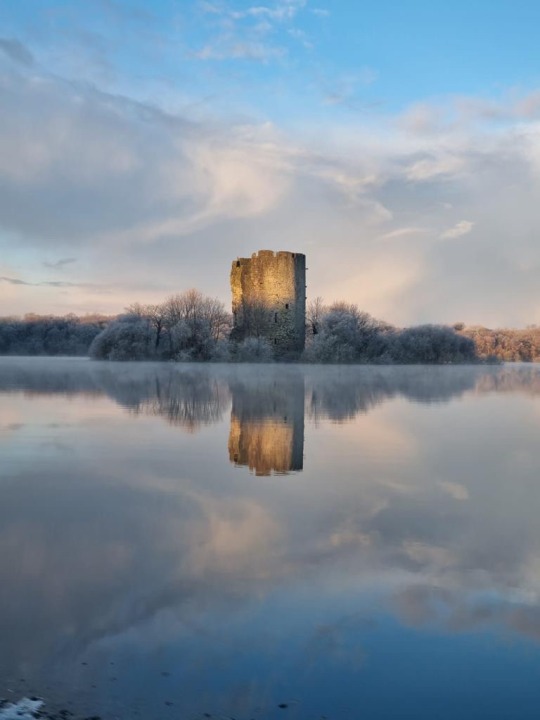
View On WordPress
#Clough Oughter Castle#Co. Cavan#History#History of Ireland#Ireland#Irish History#Today in Irish History
14 notes
·
View notes